#Musician: Bruce Hall
Text
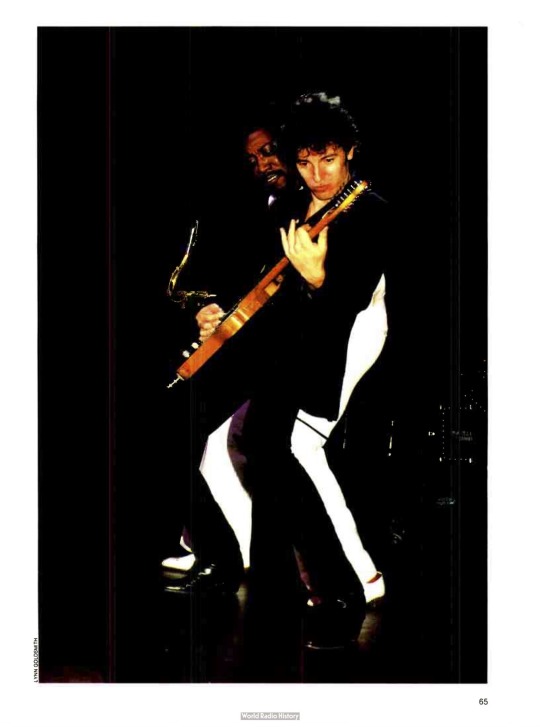
10 notes
·
View notes
Note
Have Brian Wilson and Elvis every been connected in any way? Like, did they ever meet, listen to each other's music, etc.? If not, what do you think would have happened if they had?
Brian adored Elvis, as most teenagers did in the early '50s and '60s. Brian covered "Blue Christmas" in 1964 and often cited Elvis as one of his musical inspirations. Brian loved him for his vocal abilities, not just his status as a rock-n-roller: "I liked Elvis Presley’s songs," he said. "... I thought Elvis was a very underrated singer, he was a very good singer. He was more of a star. He was known more for his fame than his voice. I think he deserved more credit for his voice."
Brian's affinity for Elvis is evident in his stage setup for his Smile concerts in 2004, which was the first time his incomplete masterpiece (originally set for release in 1967) was performed in its entirety for the public. Brian, like Elvis, has dealt with extreme stage fright for most of his career, so for inspiration, he includes notes from his band and an image of Elvis on his keyboard.
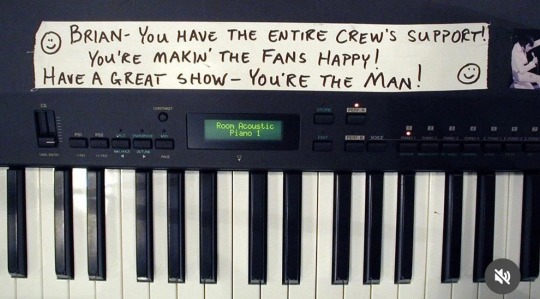
According to band members Mike, Al, and Bruce, Elvis did know the Beach Boys and got to meet some of them in 1968 when he was preparing to resume live appearances and recording tracks for the Comeback Special.
AL JARDINE: Bruce (Johnston) and I met Elvis in the late '60s. He was working in the studio across the hall from us at Western. Bruce and I went over and introduced ourselves and he was very delighted to see us. He was trim and great looking, just like his album covers. He hadn’t gone back out on the road yet. We encouraged him to get back to work and he took us up on it.
MIKE LOVE: He was in the big room at Western and had his cape on at the time (laughs). He was preparing to go back out on tour and he was asking us, “Well, what’s it like?” He was a really kind gentleman. He couldn’t have been nicer. He definitely knew who The Beach Boys were. You couldn’t not be aware of who The Beach Boys were in the '60s.
Brian was not with them at the time and never got to see Elvis perform live, but their careers continued to connect in interesting ways. Jerry Schilling, a member of the Memphis Mafia and good friend of Elvis, departed Elvis' group in 1976 to begin managing the Beach Boys full time. He became good friends with the band, especially Carl Wilson, the youngest Wilson brother. "After Elvis, Carl was my closest friend," Jerry said. After Elvis' death in 1977, Carl offered to visit with Vernon Presley, Elvis' dad, to spend time with him and get his mind off his grief.
Jerry Schilling was also married to Myrna Smith, a member of the Sweet Inspirations, a gospel group that provided backing vocals for all of Elvis' stage shows. Myrna wrote the lyrics for many of Carl's solo projects, including a tribute song for Elvis that was being considered as the theme song for the 1981 documentary This Is Elvis. Carl wrote the music, played guitar and sang backing vocals, and Myrna wrote the lyrics and sang. The song was abandoned, but the demo tapes were recovered not too long ago.
youtube
JERRY SCHILLING: The song ... tells who Elvis was … the lyrics and the music. It’s simple, it’s sweet, and it’s deep. It’s emotional to talk about it, because all three of these people – who were so close to me in my life – are all gone. But boy, this is a great piece of all of their music left behind honoring Elvis, and done by Carl and Myrna.
Elvis and Brian also both got to work closely with guitarist James Burton. Burton was much more of a long-term staple for Elvis, but he played in sessions for Smile and remembered how Brian would invite musicians to his home and make them spend the night so they could play at all hours.
Now, we get to the best part: Brian and Elvis did meet once, and it's one of my favorite stories of all time. Here is Brian telling the story on The Tonight Show.
youtube
It's been told a few different ways (Brian, bless him, is sort of an unreliable narrator, so bear this in mind), but every version is just incredible.
JAMES BURTON: I walked into the big studio, and Brian Wilson was in there mixing a record that I played on. And he said, "Whatcha doing here, man?" [I said,] "I’m in the next room with Elvis rehearsing." He said, "Oh! Please, please take me to meet Elvis." I took him in and he walked up to Elvis and was just looking at him. And Elvis stuck his hand out to shake hands and he couldn’t move.
Daily Express/Elvis Birthday Celebration at Graceland, 2020
•••
JERRY SCHILLING: We were at a rehearsal session at RCA Studios in Hollywood, and Elvis always prided himself on our security. There was security at the studio as well. This big, overweight, bearded guy came into the studio and went right up to Elvis and went, "Hi Elvis, I'm Brian." And Elvis was very upset with us thinking, "How did this guy get in here and who is he?" So Brian said, "I'm recording next door. Would you come over and listen?" And Elvis looked at us; it's almost in spite of us since this guy had gotten through. He said, "Yeah, I'll go over."
So we went over, and Terry Melcher, Doris Day's son, was producing. Terry played a track for Elvis, and Brian said, "Do you think we have anything?" And Elvis said, "No." And we went back to our studio. Later, the security guys told us it was Brian Wilson of The Beach Boys.
elvis.com.au
•••
BRIAN WILSON: I was recording with Terry Melcher at RCA Victor Records in 1975. We were working on the song “Why Do Fools Fall in Love?” Terry said, “Hey, Elvis is in the next studio recording.” That was a big surprise to hear he was in the studio next to me. So I walked into the studio and said, “Hi, I’m Brian Wilson,” and he goes, “Hello, Duke.” I don’t know why he called me Duke. I said, “Would you like to hear what I’m doing in the studio?” and he said yes. So we walked over to my studio and listened to what I was doing and then said he had to leave. It was a thrill to meet him and he was real happy to meet me.
Rock Cellar, 2013
•••
BRIAN WILSON: Yeah, around 1969 we were recording in the same place as Elvis, and I asked him if he’d come across the way to our studio. He shook my hand and goes, “I’ve heard a lot about you. How you doin’, Duke?” He called me “Duke,” don’t ask me why. (laughs) So I figured okay, Elvis is like me, a joker, so I’m going to play a little joke on him. I knew he was a black belt, so I faked a karate chop and a kick at him. He blocked them both easily, and I started cracking up, to show him I was kidding, but he didn’t think it was funny and said, “Hey, Duke, don’t do that.” I said, “Hey man, I’m just kidding around.” So we talked about music for a few minutes, about “Good Vibrations,” and then the conversation sort of died down, so, to liven things up, I threw another karate chop at him. He backed up in his chair, says, “I’m a little worried about you, Duke,” and then signaled to his boys that they were leaving. I never saw him again. I regret that. He was quite an artist.
Interview with Alex Simon, 2012
•••
What has been your most embarrassing moment?
BRIAN WILSON: When I karate chopped Elvis Presley. He called me "Duke" - I was so nervous I acted stupid. It was in 1975 at RCA Victor Studios. After I did that, he said, "I gotta get outta here."
The Guardian, 2004
BLESS HIS HEART.
This was definitely in 1975, not 1969, while Elvis was working on "Pieces of My Life" from the Today album. Around this time, Brian was mostly just fussing around in the studio, trying to come up with the Beach Boys' next album and attempting to produce small songs for other acts. Brian says he met Elvis while recording "Why Do Fools Fall in Love," which most likely means not his 1964 version but the version he was producing for California Music, a supergroup involving Terry Melcher, Bruce Johnston, Dean Torrence, and others.
This is the song he played for Elvis, most likely.
youtube
BRIAN: Do you think we have anything?
ELVIS: No.
I agree with E, I think; you had to have the biggest brain imaginable to understand Brian's sound in the mid-'70s. The songs he'd come up with over the next two years are awesome, but weird, and you can tell this is an early effort in a period where he wasn't really trying very hard to complete anything. Actually laughing so hard at Elvis listening to this and just 😬
I don't think Elvis was actually mad or anything, there are a thousand stories of him and his bodyguards reacting quickly to any sudden movement and then relaxing once they realized it was just an overeager fan, and Brian is the biggest wild card, lmao. I'm sure if Elvis had no idea who he was at the time or how he got in, he was probably a bit unsettled but didn't want to be rude. Also very likely that Elvis was bored out of his mind recording in this time period and just wanted an excuse to procrastinate.
Getting back to the other ways they're connected, I love what Brian said, "Elvis is like me, a joker." That's so true. They are both always the Weirdest Person in the Room, which you can SEE in this brief meeting. It kind of makes me think they wouldn't get each other unless circumstances were ideal to really let loose. They both had bonkers, deadpan humor that would go over most people's heads, and they both loved playing pranks on people. I think they would enjoy talking about music and spirituality as well, though Brian would have to keep it to non-drug-related revelations. They are also both girl dads, and it makes me happy just to imagine Lisa, Carnie, and Wendy all playing together. Carnie and Lisa were almost the exact same age, born just two months apart. 🥺
And, to wrap up this incredibly pointless deep dive, what I would wish most is that them knowing each other would have sped up their mutual healing. Brian to me represents the impossible, one-in-a-million shot where the cycle of exploitation that befalls sensitive, genius people in the industry breaks, and someone who was taken advantage of regains control of their life and makes their art on their own terms. Like Elvis, Brian also dealt with enormous creative pressure at a young age, crippling stage fright, a sense of alienation from his peers, a longing to go beyond formulaic music and tap into deeper emotions, binge eating and general disregard for his own health, problems with overmedication, and eventually an abusive manager who controlled all aspects of his personal life. And just ... somehow, he got out of all that and got another chance. I dearly wish Elvis had had more time. Both their stories show how precious life is and how important it is that our loved ones advocate for us, even when we're unable or unready to advocate for ourselves. And to keep responding to the joy and humor and heart in ordinary experiences and people, even when life feels hard.
And they're both so funny, pleeeeeease.


#elvis presley#brian wilson#the beach boys#(brain damage)#(it's my party and i get to pick the breakdown)
24 notes
·
View notes
Text
Hymn, Ch. 21
Damian is lying flat on the rug, smushed on his stomach and locked in eye contact with the cat.
Teacup stares. Damian stares. They breathe in double and half time. Neither one blinks.
“You’re a little scary sometimes, you know that?” Timothy says, and there’s a loud fwump somewhere behind Damian. He assumes it is his brother rolling over the top of the sofa and landing on its seat.
“Fear is power,” Damian replies automatically. The rug suddenly prickles against his skin everywhere he’s touching it.
“Fear sucks, and we don’t need it,” says Timothy.
“Being hunted by mountain lions,” Damian counters.
“Fair,” concedes Timothy. He rolls over onto his side and props his head on one hand. “I see you decided to bond with Teacup.”
“She is quiet,” Damian grumbles into the rug. “Unlike every other creature in this place.”
On cue, the sounds of rhythmic thumping and incoherent voices drift up again through the old floorboards, along with the faintest hints of a melody.
An amused noise bursts out of Timothy’s nose.
“Where is Nova?” Damian asks.
“Nova? I see. No ‘Hello, Tim’, no ‘Good to see you Tim’, no “you’re my favorite brother, Tim’? Just the dog?”
“Hello, Tim. Where is Nova.”
“Kidnapped. Steph took her out for a run.”
Damian twists around, locking eyes with Timothy. “Again? She went this morning.”
Timothy shrugs. “Bruce was doing his frowny-eyes thing out the window when she left, so I guess he’s on it.”
“What is on it?” Damian asks.
“On top of it. Taking care of a thing. Handling a situation.”
“Ah.”
They lie together in silence perhaps for one minute, perhaps for more.
“What are they singing?” Damian finally asks.
Timothy drops his head off the edge of the sofa cushion, angling one ear towards the floorboards, and screws up his face for a moment as he concentrates.
“Jack Black’s Hanukkah song, I think.” he says. “Jason got into his holiday playlist while baking, and now he and Dick are having a whole concert in the kitchen. Somehow Jason hasn’t burned any cookie batches yet.”
It’s Damian’s turn to roll over. He stares up at the ceiling, laces his fingers together over his stomach.
“Is Jack Black an important historical musician?” he asks.
Timothy bursts out in a laugh.
“There is no need to mock me,” Damian says. He scowls.
“I’m not! I’m not. I just hadn’t ever thought about him that way until now, and you surprised me, is all.” Timothy then seems to consider for a few moments. “Jack Black is. Hm. He’s definitely an American legend, but I’m not sure if he’s a legendary-slash-historic singer or not. I only know a little bit of the stuff he’s done. We should ask Dick, he’ll know.”
“The last time I asked Richard something, he made me watch Sesame Street.”
“Sesame Street is good for the soul. And a developing child’s brain.”
“It was horrible.”
“Did you see Big Bird when you watched it? I used to love Big Bird.”
“I was attempting to block out the experience.”
“What about Elmo?” Tim asks. “Elmo’s fish?”
“It was demeaning ,” says Damian. “It was infantilizing .”
“Did you get to see Snuffleupagus? What did you learn? I remember learning how to count to ten in Spanish. Do they still have Zoe?”
“I came up here for peace.”
“How about Oscar the Grouch? If you practice, I bet we could dress you up as him next Halloween. Bet Dick would laugh.”
“I will end you.”
“I love you too.”
Teacup chooses this moment to step her paw directly onto Damian’s cheekbone, and whatever the boy’s response was going to be is cut off by a shout. Damian jolts, Teacup bolts, and Timothy begins to laugh.
Until Damian hits him with one of the floor cushions, that is. And at that, their on-and-off tactical pillow fight is immediately back on, and they tumble out the door, down the hall, and off into the next winter break adventure that falls into their laps.
---
“Hey,” Jason pipes up, just before the end of the movie. “Has anyone else noticed how much Scrooge looks like Alfred?”
“Yeah,” says Dick. “It’s so weird. The first time we watched this, Bruce and I asked Alfred if he had a secret acting side job we didn’t know about.”
The others are silent for a few moments as the characters sing onscreen.
“And?” says Jason.
“He gave us the look,” Dick finishes. “He said ‘Do you really believe I would not only star in a film but act alongside a cast of mainly inanimate puppets?’ And then he walked away.”
“But it’s a legend!” Steph says. “It’s Dickens! It’s British! It’s got detailed period clothing for everyone. It’s the most historically accurate version of the story to date!”
“Minus the Muppets,” says Tim.
“Minus the Muppets.”
“And the jokes,” Jason adds.
“Did he ever say he didn’t?” Steph demands.
“Well,” says Dick. “No. Not explicitly.”
“Guilty until proven innocent,” Steph concludes grimly, and she locks eyes with Jason. “We’ll get the truth out of him one way or another. Just wait. It’s exactly an Alfred thing to do.”
“Have fun with that,” Dick tells them, flopping back on the couch, and, coincidentally, on top of Damian. “He didn’t give a straight answer to me, he won’t give a straight answer to you. But I will tell you this.” He pushes up off of a still-protesting Damian and leans forward, making sure Jason and Steph are giving their rapt attention. He lowers his voice. “When I looked up the listed actor, I found a whole lot of stage acting credits but not a single other film to his name. The man exists on paper and in records, but somehow isn’t anywhere to be found in any residences he’s on paper as owning. Do with that what you will.”
“We’re going to get to the bottom of this,” Jason swears. “I’m going to go corner Alfie with cookies and ask about his thespian adventures. Brown, you in?”
“I’m in,” Steph says immediately. She hops off the armchair she’s been sitting in and heads after Jason as he stalks out the door. “If he has a secret acting career, we’ll know.”
“I doubt it,” Dick mutters. Then, back at normal volume, he asks, “Who wants to finish this and then put on Die Hard?”
Cass waves to catch his eye. Allowed? she asks. Us all? Her mouth twists and face scrunches up, doubtful.
“What Bruce doesn’t know won’t hurt him,” Dick says with a grin. “Are you going to tell on us? ‘Cause I won’t.”
She and Tim and Damian all shake their heads no.
“Well then,” Dick days with finality. “It’s settled. We have exactly three hours and nineteen minutes before he’s back from the soup kitchen. Jay and Steph should keep Alfred busy for a while. We’re good to go.”
They watch the rest of the movie’s closing musical number, singing or bobbing (or in Damian’s case, tapping one finger quietly on the cushion) along.
Then, somehow, they end up putting on Jumanji instead of Die Hard, because it’s “good for Damian’s Jack Black education”, and also their souls. With how much they have to pause the movie for laughter even after Bruce makes it home, Dick can’t bring himself to regret it. He can watch Die Hard with Bruce later in secret, anyway. Maybe it can stay just theirs for one more year.
---
Hours later, when they’re all asleep or nearly, and scattered around the lounge, the credits roll on the second Jumanji movie. Alfred’s grandfather clock in the hall begins to toll.
Dick blinks his eyes open for a moment as fingers brush across his forehead. His eyes meet Bruce. Dick goes to speak, but something comes out of his mouth that’s more a garbled mumble than any real word. He frowns.
“Happy Christmas and Happy Hanukkah, chum,” Bruce gently teases. “Still can’t stay awake after all these years, huh?”
“Mean,” Dick slurs. “I’ve been busy. S’not not my fault everyone needs stuff.”
“I know, Dick,” Bruce whispers back. He smooths his hand over Dick’s forehead again, once, twice. Then his hand settles on Dick’s cheek, upside down. “You do so much. You’re amazing. You need rest too, not just the others.”
Dick mumbles something in agreement, then lets his eyes drift back closed. He feels Damian’s weight shift against his leg, followed by a tiny jostle, and he snuggles further into the sofa’s plush back cushion.
The next thing Dick knows, a hand is back on his head. His cheek this time, gently tapping.
“Dickie. Dick. Come on, Dickie. Time to get to bed if you want any energy for presents tomorrow.”
“Always have energy for presents,” Dick mumbles back. He’s immediately hijacked by a jaw splitting yawn.
“Bed,” Bruce repeats softly. “I already got the others up there. Just you left. You’re so tired, bud. Let me help.”
Dick does.
He lets Bruce help him up into something close to sitting straight, then lets Bruce help get his feet back on the floor. Bruce and he both wince at the sound his left knee makes as he uncurls.
“I think we’ll take a trip to Dr. Thompkins soon,” says Bruce. “That can’t be feeling good. Why haven’t you mentioned it earlier?”
“I’ve had worse,” Dick says tiredly. He waves a dismissive hand. “There’s been a lot going on around here. My knee can wait.”
“No,” Bruce chides. He hooks his thumb under Dick’s chin and tilts it up till they’re making eye contact. “No matter what’s going on, you’re important too. We’re teaching Damian to not wait and to ask for help when he’s in pain. What can we say if he asks us ‘Why not you?’?”
“Low blow, B,” Dick says, and sighs. “Point taken.”
“I know you’re independent, and I know you’re more than capable. You’re a strong man and a wonderful brother and son. I just ask that you keep me in the know. No carrying more than you can bear.”
“I’ll remember next time,” Dick offers.
“Sure,” Bruce agrees amiably. “Come on, trooper. Bed.” He hooks an arm under Dick’s, gives him a pull off the sofa. “Let’s get to sleep before the whole night is over. Don’t want to be too tired for Alfred’s breakfast feast.”
“Never,” Dick agrees.
He lets Bruce take a little of his weight—just a little. They make their way down the hall, up the staircase, through the manor, into his room. Bruce deposits him on the toilet, hands him a waiting toothbrush, and leaves.
Dick closes his eyes and brushes tiredly. He leans over to spit and rinse in one of his sinks, then drops the toothbrush with a clatter back into its cup. He looks in the mirror at his eye bags, his wrinkled clothes, his pale face, and he sighs. He runs one hand through his already-messy hair as he steps out of the bathroom, but finds his path blocked by Bruce.
“Hello?” he says.
“Hi,” says Bruce.
“I thought you went to bed.”
Bruce shakes his head and takes Dick’s weight again. “Not yet.”
They make it to the bed, and Bruce carries his shoes to the wall by the door as Dick shucks his pants.
Bruce makes eye contact as he pointedly drops three different knee braces onto the nightstand. “Wear one,” he says. “You don’t need to be in pain because other people are.”
“Okay,” is all Dick can say.
“I’ll say it again when you need. I’ll say I for years. You don’t need to self-sacrifice. You’re already what we love and need. Healthy, happy Dick Grayson. That’s what you’re meant to be. We’ll work on it. Okay?”
“Okay, B.”
“Okay.”
“Okay.”
“Get your sleep,” Bruce orders. “And in the morning, leave the kids to me. I’m the adult. Take a breather.”
“I’m an adult too.”
“Yes, and you’re also a kid. My kid.” Bruce pulls him close and drops a quick kiss on the top of his head, then pulls back again and heads for the door. “You’ll always be my kid, Richard John Grayson. Sleep, knee brace, eat. Those are your orders for the morning. Leave the rest to me.”
Dick sighs.
“Sir yes sir,” he tosses out. He sees Bruce’s mouth twitch.
“Good night, Dick. I love you. I’m so glad you’re here.”
“You too, B,” Dick says through another yawn, and he lets himself tip over onto the pillow, pulling his heap of blankets up around him. “Happy Christmas. See you in the morning.”
Bruce gives one last wave, flicks off the light switch, and shuts the door quietly behind him.
Dick rolls onto his back and settled in, signing long and high. Sleep. Rest. Eat. Okay.
He can do that. He can get some rest. I’m the morning, they’ll all be full of excitement for a two-holiday day and all it includes, eating Kringle and latkes and Christmas cookies and whatever else Alfred and Jason had cooked. They’l be sad and happy and all the other feelings that haunt around the edges of their giant house. It will be wonderful, and it will be messy, and it will be theirs.
Dick smiles just a bit as he drifts off to sleep. The morning will come with its joy when it’s ready, and when it’s time, he’ll be up, and he’ll be there.
65 notes
·
View notes
Text
i cant include every artist dads are varied in their music taste dont kill me ok
22 notes
·
View notes
Text
The 2024 Shortlist
The BBC’s 13th Annual Celebration of Audio Drama
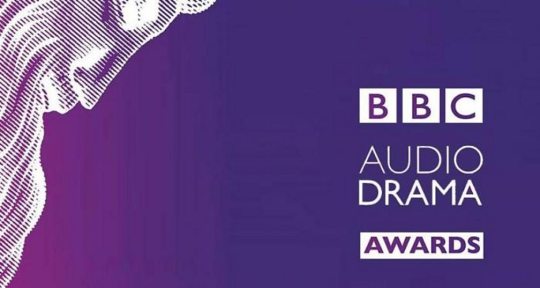
2023 marked the centenary year for audio/radio drama at the BBC. For 100 years of this unique genre, audio drama and comedy have provided enjoyment, diversion, illumination, insight and escape for listeners, evolving in approach and style as audio practitioners have responded to new ideas and technology with ingenuity, imagination and inspiration. These awards celebrate the creativity of actors, writers, directors, producers, musicians, sound designers and all who work in this vibrant art-form.
The winners will be announced on Sunday 24 March 2024 in a ceremony in the Radio Theatre at BBC Broadcasting House London. The winners of the Imison and Tinniswood Awards (judged and administered by the Society of Authors and the Writers’ Guild of Great Britain) will also be announced at this ceremony.
Best Original Single Drama
Benny and Hitch by Andrew McCaldon, producers Neil Varley and Tracey Neale, BBC Audio Drama London
Churchill versus Reith by Mike Harris, producer Gary Brown, BBC Audio Drama North
Dear Harry Kane by James Fritz, producer Sally Avens, BBC Audio Drama London
Eat and Run by Paolo Chianta, producer Lorna Newman, BBC Audio Drama North
Rare Earth by Richard Monks, producer Nicolas Jackson, Afonica
Voices From the End of the World by Lucy Catherine, producer Sasha Yevtushenko, BBC Audio Drama London
Best Adaptation
The Age of Anxiety by W.H.Auden, adapted by Robin Brooks, producer Fiona McAlpine, Allegra Productions
Beowulf Retold based on the version by Seamus Heaney, producer Pauline Harris, BBC Audio Drama London
Bess Loves Porgy by Edwin DuBose Heyward, adapted by Roy Williams, producer Gill Parry, feral inc
The Dark is Rising by Susan Cooper, adapted by Robert Macfarlane and Simon McBurney, producer Catherine Bailey, Catherine Bailey Productions and Complicite
If on a Winter’s Night a Traveller by Italo Calvino, adapted by Tim Crouch and Toby Jones, producer Nadia Molinari, BBC Audio Drama North
One Moonlit Night by Caradog Prichard, adapted by Rhiannon Boyle, producer Emma Harding, BBC Cymru Wales
Best Original Series or Serial
The 5000 by Sebastian Baczkiewicz, producers Gaynor Macfarlane, BBC Scotland
An Eye for a Killing by Colin Macdonald, producer Bruce Young, BBC Scotland
Flirties, written and produced by Jess Simpson, Audiocraft
There’s Something I Need to Tell You by John Scott Dryden and Misha Kawnel, producer Emma Hearn, Goldhawk Productions
The Tomb by Sebastian Baczkiewicz, producer Joby Waldman, Reduced Listening
Trust by Jonathan Hall, producer Gary Brown, BBC Audio Drama North
Best Actor
Hiran Abeysekera, Dear Harry Kane, director Sally Avens, BBC Audio Drama London
Max Irons, The Bronze Horseman, director Susan Roberts, BBC Audio Drama North
Toby Jones, If on a Winter’s Night a Traveller, director Nadia Molinari, BBC Audio Drama North
Lorn Macdonald, Confessions of a Justified Sinner, director Kirsty Williams, BBC Scotland
Tim McInerny, Benny & Hitch, director Tracey Neale, BBC Audio Drama London
Tom Walker, Call Jonathan Pie, Alison Vernon-Smith, Yada-Yada Audio
Best Actress
Gabrielle Brooks, Bess Loves Porgy, director Michael Buffong, feral inc
Dinita Gohil, Victory City, producer Alison Crawford, BBC Bristol
Maxine Peake, The Women of Troy, director Nadia Molinari, BBC Audio Drama North
Rosamund Pike, People Who Knew Me, director Daniella Isaacs, Merman
Lydia Wilson, Happy Birthday, Mr President, director Gaynor Macfarlane, BBC Scotland
Fenella Woolgar, Lines in the Sand: The Journeys of Gertrude Bell, director Jessica Mitic, BBC Audio Drama North
Best Supporting Performance
Sacha Dhawan, Anna Karenina, director Nadia Molinari, BBC Audio Drama North
Erin Doherty, The Seagull, director Toby Swift, BBC Audio Drama London
Mark Heap, Kafka’s Dick, director Dermot Daly, Naked Productions
Sophia Del Pizzo, There’s Something I Need to Tell You, director John Scott Dryden, Goldhawk Productions
The Marc Beeby Award for Best Debut Performance
Izzy Campbell, Of a Night, director Jessica Mitic, BBC Audio Drama North
Rosie Ekenna, Faith, Hope and Glory, director Anastasia Osei-Kuffour, BBC Audio Drama London
Rosalind Eleazar, Hindsight, director Gaynor Macfarlane, BBC Scotland
Jadie Rose Hobson, Exposure, director Anne Isger, BBC Audio Drama London
Dan Parr, The Test Batter Can’t Breathe, director Tracey Neale, BBC Audio Drama London
Olivia Triste, Rise, director Dermot Daly, Naked Productions
Best Sit Com or Comedy Drama
Call Jonathan Pie by Tom Walker, producer Alison Vernon-Smith, Yada-Yada Audio
Kat Sadler’s Screen Time by Kat Sadler and Cameron Loxdale, producer Gwyn Rhys Davies, BBC Studios Audio
Michael Spicer: Before Next Door by Michael Spicer, producer Matt Tiller, Starstruck Media
Mockery Manor by Lindsay Sharman, producer Laurence Owen, Long Cat Media
She Stoops to Conquer by Oliver Goldsmith, adapted by Barunka O’Shaughnessy, producer Emma Harding, BBC Cymru Wales
Where to, Mate? devised by Jo Enright, Peter Slater, Abdullah Afzal, Nina Gilligan, Andy Salthouse, Keith Carter, Jason Wingard, producer Carl Cooper, BBC Studios Audio
Best Stand Up Comedy
Daliso Chaponda: Citizen of Nowhere by Daliso Chaponda, additional material Meryl O’Rourke, producer Carl Cooper, BBC Studios Audio
Janey Godley: The C Bomb by Janey Godley, producers Julia Sutherland and Richard Melvin, Dabster Productions
Maisie Adam: The Beautiful Game by Maisie Adam, producer Georgia Keating, BBC Studios Audio
Olga Koch: OK Computer by Olga Koch and Charlie Dinkin, producer Benjamin Sutton, BBC Studios Audio
Rob Newman on Air by Rob Newman, producer Eloise Whitmore, Naked Productions
Sarah Keyworth: Are You a Boy or a Girl by by Sarah Keyworth, additional material Ruby Clyde, producer James Robinson, BBC Studios Audio
Best Use of Sound
The Adventurers, sound by Alisdair McGregor, producer Boz Temple-Morris, Holy Mountain
The Dark is Rising, sound by Gareth Fry, producer Catherine Bailey, Catherine Bailey Productions and Complicité
Hamlet Noir, sound by David Chilton, Lucinda Mason Brown, Weronika Andersen, producers Charlotte Melén, Carl Prekopp and Saskia Black, Almost Tangible
Slow Air, sound by Alisdair McGregor and Eloise Whitmore, producer Polly Thomas, Naked Productions
Voices From the End of the World, sound by Peter Ringrose, producer Sasha Yevtushenko, BBC Audio Drama London
The Women of Troy, sound by Sharon Hughes, producer Nadia Molinari, BBC Audio Drama North
Best Podcast Audio Drama
Badger and the Blitz by Richard Turley and Darren Francis, producer Richard Turley, Roxo Ltd
Below by Aaron Gray and Paul Skillen, producer John Wakefield, HTM Television
Flirties, written and produced by Jess Simpson, Audiocraft
The Haunter of the Dark – The Lovecraft Investigations by Julian Simpson, producer Sarah Tombling, Sweet Talk Productions
The Salvation by Justin Lockey, Jeffrey Aidoo, and AK Benedict, producers John Hamm and Boz Temple-Morris, Holy Mountain and Free Turn
Tagged by Brett Neichin and John Scott Dryden, producer Emma Hearn, Sony Music Entertainment and Goldhawk Productions
Best European Drama
Evicted by Karel Klostermann, adapted by Tomáš Loužný, producer Renata Venclová, CZR Czech Radio
Faust (I Never Read It) by Noam Brusilovsky, producer Andrea Oetzmann, SWR Südwestrundfunk with Deutschlandfunk
Irina’s Soul Is Like a Precious Piano by Rona Žulj, producer Katja Šimunić, Croatian Radiotelevision
The Sick Bag Song by Nick Cave, adapted by Kai Grehn, producer Lina Kokaly, Radio Bremen
The Supervisor by Nis-Momme Stockmann, producer Michael Becker, NDR Norddeutscher Rundfunk
This Word by Marta Rebzda, producer Waldemar Modestowicz, Polish Radio Theatre
-- WooHOO! The Haunter of the Dark, part 4 of The Lovecraft Investigations, is up for a BBC Audio Drama Award! I am made up!
9 notes
·
View notes
Note
i saw your previous ask about keith's solo work and now i'm curious about your opinions on charlie's solo work! also, do you have any recommendations for charlie, i've only listened to from one charlie
If you discount session work (because Ronnie did a ton both before and after he joined the Stones), Charlie actually has the most extensive solo/non-Stones catalogue. It’s very diverse and I think the vast majority of it is very high quality.
So in terms of his session work, far and away his best contribution (that we know of - this isn’t even listed on his Wiki) was as the drummer for The London Howlin’ Wolf Sessions. He, Bill, Stu, Steve Winwood, and Eric Clapton acted as the backing band for Howlin’ Wolf on a Chess Records-Rolling Stones Records collaboration covering some of his most famous songs in 1971. For my money it’s one of Wolf’s best albums and showcases beautifully what a talented blues drummer Charlie was. He could have gone toe to toe with the old Chess guys like Fred Below if he wanted to.
It was only for one song, not an entire album, but he, Keith, and Ronnie were the backing band for Marianne Faithfull’s cover of “Ghost Dance” by Patti Smith in 1993:
Charlie was in a few non-Stones bands. Probably the most famous, although it’s really not terribly well known, is Rocket 88. The founding line-upwas Stu, Charlie, Alexis Korner, and Dick Morrissey and membership fluctuated during different projects and concerts during its active period (1978-1981). You can find a couple videos of their performances on YouTube, but their one released album, from a live concert in 1981, is really fantastic. Jack Bruce does bass and vocals on it and he and Charlie make an absolutely amazing rhythm section. 20x times better than anything he ever did with Wyman.
He was also associated with another boogie woogie band, The ABC&D of Boogie Woogie, which he didn’t co-found, but which he got into through Dave Green (his childhood best friend and the bass player for most of his solo work). That band also unfortunately only has one album, but there’s a lot more available on YouTube to enjoy because they were around in the early 2010s. This is my favorite song they covered:
youtube
It’s never been entirely explained how it came about, except that it was initially facilitated through one of his friends, the trumpeter Gerald Presencer, but Charlie did an album with the Danish Radio Big Band in 2010 that was released in 2017. The 7 tracks include 2 original compositions and 5 re-arranged Stones songs. Whoever did the arrangements and composition did a wonderful job and it’s great highlight of Charlie’s flexibility and originality as a drummer.
In the late 1980s, he and Keith did a cover of Charles Mingus’ “Don’t Let Them Drop That Bomb on Me”, it’s worth it just for the little documentary clips of the two of them, never mind the song itself, which is also well done:
youtube
That’s not everything Charlie ever did which wasn’t explicitly his own project, but it’s the highlights.
As far as his own bands/albums go, unfortunately his first album, Live At Fulham Town Hall (1986) isn’t available to stream, but you can find the tracks on YouTube and a neat little documentary/live performance clip:
youtube
(This would also be a good time to mention that there’s a beautiful, very high quality segment of Charlie playing a Duke Ellington composition on BBC4 in 2019 along with Dave and some American jazz musicians, as well as a cute little interview with the two of them after):
youtube
Everything that follows that album, with one exception, is a variation on The Charlie Watts Quintet, the group which appears on 1990’s From One Charlie to Another:
The biggest difference between his jazz albums, other than the number of players (it tended to range between a quartet, a quintet, and a tenet), is whether or not they have a vocalist. The last one, Watts at Scott’s (2004) is the one which does not and it’s a mixture of original compositions (generally written by his pianist Brian Lemon) and covers of jazz standards, including Ellington’s “A Train”:
1991’s A Tribute to Charlie Parker with Strings is a really neat, original project. It has Bernard Fowler narrating the story of Parker’s life through Charlie’s book about him from the ‘60s and covers songs which were on Parker’s own With Strings album as well as original compositions like “Terra de Pajaro.” There is one song “Lover Man”, which has vocals provided by Bernard, the rest is purely instrumental. Pete King was the saxophonist for all of Charlie’s jazz projects and he absolutely kills it on this album.
The two albums which really showcase his collaboration with Bernard and his skills as an accompanist to a vocalist, Warm & Tender (1993) and Long Ago & Far Away (1996), are lovely collections of jazz standards and standouts from the Great American Songbook. I love them both, I think which one you want to listen to just depends on your mood. The second album is definitely more melancholy:
It also has Charlie’s only solo music video, for “I’ve Got a Crush on You”, which is gorgeous and good humored:
youtube
The weirdest album in Charlie’s oeuvre, to put it bluntly, is the Charlie Watts/Jim Keltner Project (1999). It’s very avant garde, probably the most purely creative but also least accessible thing he ever did. The album was made at the same time the Stones were recording Bridges to Babylon, so Mick and Keith pop up on two different tracks (separately), but the bulk is Charlie, Jim Keltner, and a few other percussionists who contributed bits and pieces. It’s a world music-jazz-techno-beats melange of original pieces, some of which were inspired by the work of certain jazz drummers and some of which are more entirely abstract. To be honest it’s not really something you can describe, you sort of just have to listen and see if it’s your thing.
#hope that’s helpful!#the rolling stones#charlie watts#ask response#music reccomendations#music exploration#clothwaltzes#music guide
3 notes
·
View notes
Text
It was one of those nights in New York when it seemed like the whole city was focused on just one person. Every time I flicked through the channels of the TV in my hotel room there he was. It was like a speeded-up version of Anthology, one minute he was playing “Hey Jude,” the next he was a mop top on the Ed Sullivan show, then he was on the roof of Apple, then meeting the Maharishi, then waving to the audience as he made his way from the stage at Candlestick Park. Images of Paul that were so well known to me and everyone else of my generation that they have become more than pictures of the Beatles. They are the wallpaper of our lives, they shaped the cultural landscape […]
As I showed a full house of passes and accreditation to the third rank of vetters and checkers [at the Waldorf ahead of Paul’s Rock & Roll Hall of Fame induction], wading through oceans of packed snappers standing six deep behind barriers, the first faces I saw in the foyer were those of two legends, Jimmy Page and Ahmet Ertegun. I made my way through to the green room, which tonight was just a glorified holding area for the world’s music elite. There was Neil Young, Bono, Eric Clapton, Bruce Springsteen, Billy Joel, Robbie Robertson, a movie star or two for good measure, and still they were arriving.
In the corner stood Sir George Martin, elegant and virtually immobile in all the chivvying for places, the preening and the posturing. He too was being honoured tonight. He turned to me and quietly said in his distinctive and measured tones, “Just wait to see how this lot react the minute Paul arrives.” I didn’t know quite what he meant.
(continued under the cut)
[—from Paul McCartney: Now & Then, Tony Barrow and Robin Bextor]
Five minutes later I saw it exactly. A huge whisper ran around the room. I hadn’t heard anything like it since I was at school and the classroom had been left unattended; when the teacher was on his way the classroom went from activity to silence. And so did the green room. The expectation was enormous, and then through the door waltzed, well, actually, more sort of glided, the object of all our attention. And the entire collection of noble rock stars just froze. The silence was palpable.
Paul McCartney stood just to the side of the doorway, his daughter Stella at his side. He looked slighter than you would imagine, wearing a grey suit and T-shirt; he was talking to Stella, yet his raised-eyebrowed eye somehow scanned the room at the same time.
It was uncanny how the whole room was there to pay deference to this man, just as the awaiting media were. The musicians in the room, big stars, genuinely famous across the planet and rightly full of their own achievement, seemed to unite in recognising that there was the head boy, the role model that defined pop star, that personified creativity, songwriting and fame.
Paul seemed to barely acknowledge the effect he had on the gathering; he didn’t miss a beat. Just nodded vaguely in my direction and then went into a huddle with George Martin before the huddle became a scrum and the gathering just focused on him.
[…]
McCartney further defied the Hall of Fame’s Oscar-night formality by calling his daughter to the podium. Stella wore a T-shirt that bore the legend “About fucking time.” As it was completely at odds with American Network TV sensibilities, they tastefully whited-out the offending word. But when Paul returned to the press room, back from the main hall where the awards had been handed out, he insisted on having Stella close by his side throughout. The press, eager to get a picture without the T-shirt, yelled at him to stand away or for her to move out of the way. To English ears they sounded incredibly rude.
Charming, smiling, he simply said, “Goodbye fellas,” and was gone. I later saw him still in a huddle with George Martin, but pausing every sentence or two to check on Stella, obviously delighted to be out with his daughter. The public part of the evening saw him playing on stage with the band well after TV recording had finished; then while most of the gathering was still looking to get a final glimpse of the Beatle, Paul was gone, ever the master at leaving a party.
The evening finished as it had begun for me, walking back through the now quiet streets of Manhattan. On the hotel TV there was still a Beatles fest going on. I supposed it was the same person in the pictures.
#something something snapshots of mega-fame#paul mccartney#george martin#paul mccartney: now & then#robin bextor#the beatles#1999#paul and fame
129 notes
·
View notes
Text
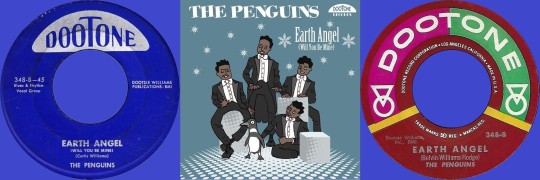
The Penguins - Earth Angel (Will You Be Mine) (1954)
Gaynel Hodge / Curtis Williams / Jesse Belvin
from: "Hey Señorita" / "Earth Angel (Will You Be Mine)"
Doo-Wop | R&B | West Coast Doo-Wop
JukeHostUK
(left click = play)
(320kbps)
Personnel:
The Penguins:
Cleveland Duncan: Lead Vocals
Dexter Tisby: Tenor
Bruce Tate: Baritone
Curtis Williams: Bass
Musicians:
Dootsie Williams: Piano
Ted Brinson: Bass
Uknown: Drums
Produced by Dootsie Williams
Recorded:
in a Garage
@ 2190 West 30th Street
in South Central Los Angeles USA
August–September, 1954
Released:
October, 1954
Dootone Records
♪♪♪ ♪♪♪ ♪♪♪
"Earth Angel" became the first independent label release to appear on Billboard's national pop charts, where it peaked within the top 10.
- Wikipedia
The Penguins' only hit, it eventually sold in excess of 10 million copies. The original recording of the song remained an enduring hit single for much of the 1950s, and it is now considered to be one of the definitive doo-wop songs. In 2005, it was one of 50 recordings chosen by the Library of Congress to be added to the National Recording Registry, deeming it "culturally, historically, or aesthetically important."
- Wikipedia
In 1998, The Penguins 1954 recording of "Earth Angel (Will You Be Mine)" on Dootone Records was inducted into the Grammy Hall of Fame.
- Wikipedia
♪♪♪ ♪♪♪ ♪♪♪

Library of Congress:
“Earth Angel (Will You Be Mine)” by The Penguins
(1954)
Added to the National Registry: 2004
Essay by Cary O’Dell
https://www.loc.gov/static/programs/national-recording-preservation-board/documents/EarthAngel.pdf
#Earth Angel#Doo-Wop#Dootone Records#Earth Angel (Will You Be Mine)#1950's#Curtis Williams#Cleveland Duncan#Jesse Belvin#Gaynel Hodge
6 notes
·
View notes
Text
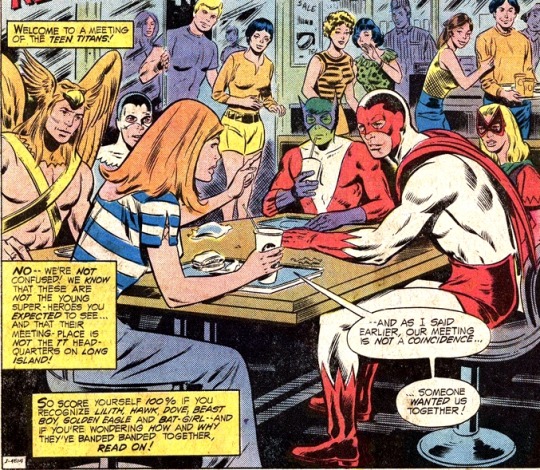
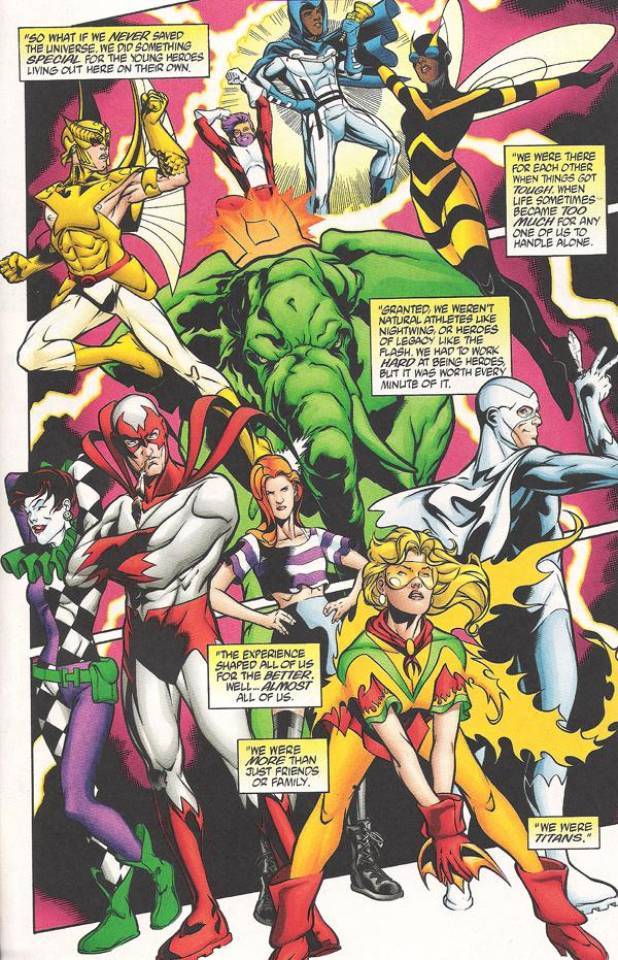
I love you so much titans west!
(Fair warning I'm using photos from all over the comic timelines)
All of them can be considered longtime members of the titans organization.
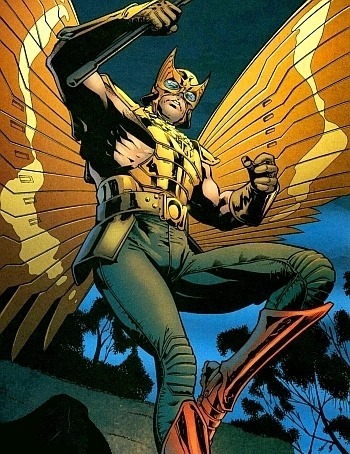
Golden eagle/Charley Parker/Ch'al Andar
Half thanagarian half earthling superhero. Son of thanagarian fel andar(who himself is half n half) and human Sharon parker.
It's been a while since I read anything with him in it so can't say for sure who he's been romantically linked with.
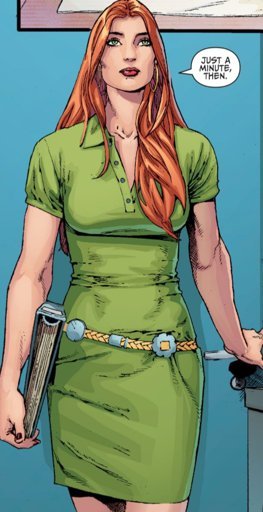
Lilith clay/lilith Jupiter known as the heroine omen long time member of the titans organization.
a powerful telepath with the power of limited foresight as well as other abilities.
Been romantically linked to both gnarrk and garth/tempest
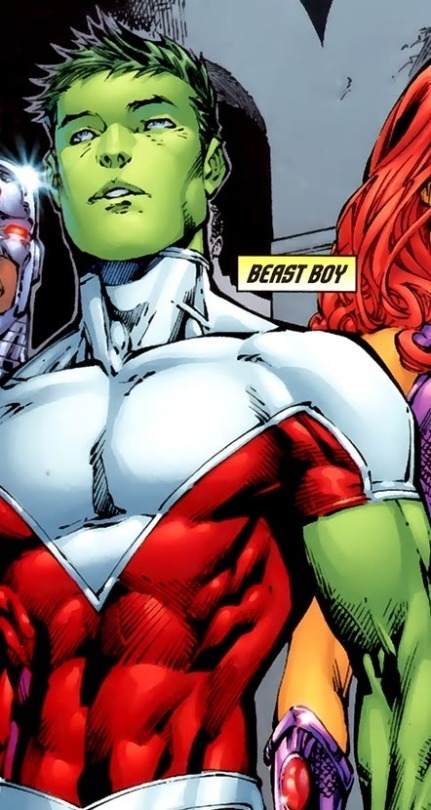
Garfield logan aka Beast boy/changeling
Much like lilith, gar is also a Long time member of the titans organization
a green-skinned superhero who has the power to transform into any animal. Originally a member of the Doom Patrol, he joined the Teen Titans after the death of the other Patrollers.
Romantically linked to notable titans terra/tara Markov in the main comic continuity and raven/rachel roth in alternative universes/continuities
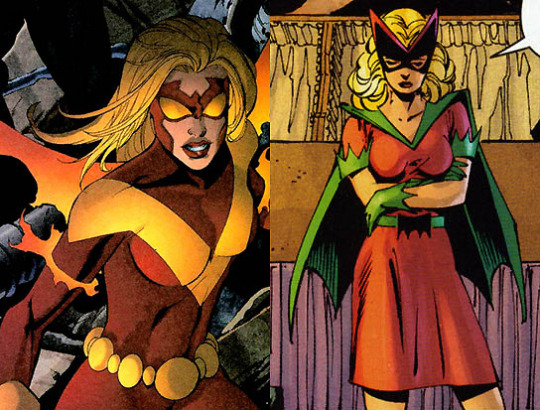
Mary Elizabeth kane aka bat-girl/flamebird/hawkfire(we don't talk about hawkfire)
Athletic rich heiress. Professional tennis player. Flamebird to dicks Nightwing. First batgirl
Younger Biological 1st cousin of Bruce wayne and Kate kane. I love her so much. Much like lilith and Garfield bette is also a long time member of the titans organization.
Romantically had a crush on Nightwing since they were kids(before bette and bruce were said to be cousins) . It's also been heavily implied that she had a adult fling with hank hall during their time on titans west.
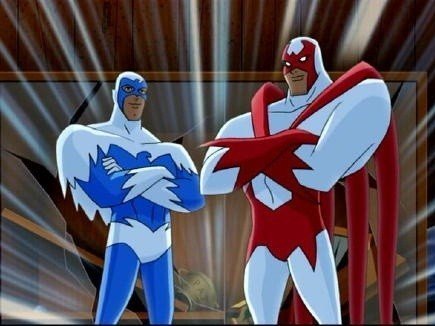
Hawk and dove
Twin brothers hank(red) and Don hall(blue)
Hawk and Dove are empowered by the mystical Lords of Chaos and Order.
Hanks a long time titans member same with Don but he died at one point.
Hanks been romantically linked to both bette kane and dawn granger/dove II(titans tv show)
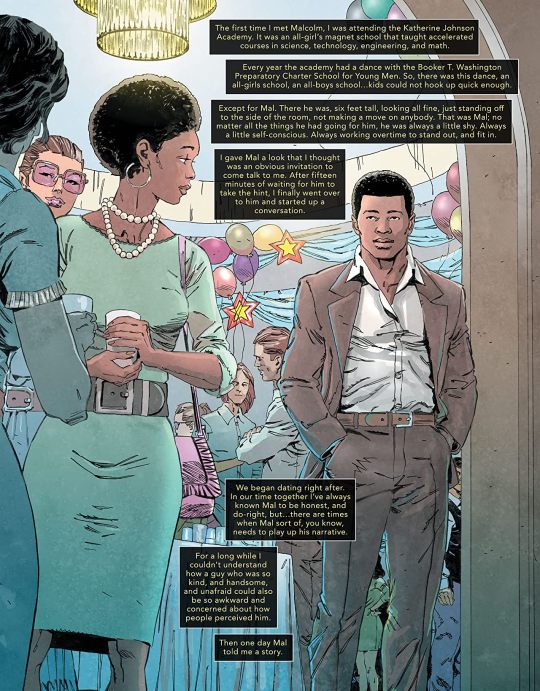
Bumblebee and herald/vox/hornblower/guardian
Karen beecher-duncan and Malcom Duncan
I love them omg I love them.
In order to help make Herald look good in front of the team, Beecher secretly made herself a bumblebee-themed super-suit and attacked the Teen Titans. She escaped without this ruse being revealed.
When she later explained to Mal and the Titans what she had done, they were impressed enough to offer her membership, which she accepted.
Karen is a research engineer at star labs making non lethal weaponry and Malcom whose a accomplished jazz musician owns a nightclub called Gabriel horns. obviously married to one another. They have a family together to.
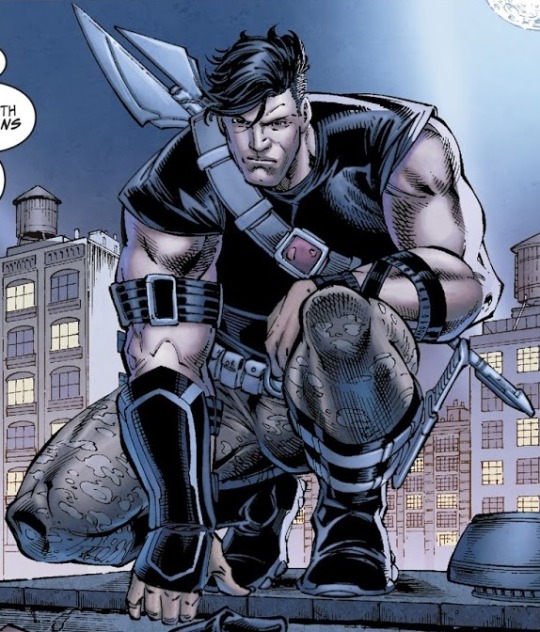
Gnarrk aka ape-boy/cave boy
Gnarrk was a 17-year-old caveman whom Teen Titans Mal Duncan and Kid Flash(wally) encountered on a trip to the Stone Age.they Accidentally brought gnarrk back. The titans helped him adapt to the modern age. Romantically link to lilith.
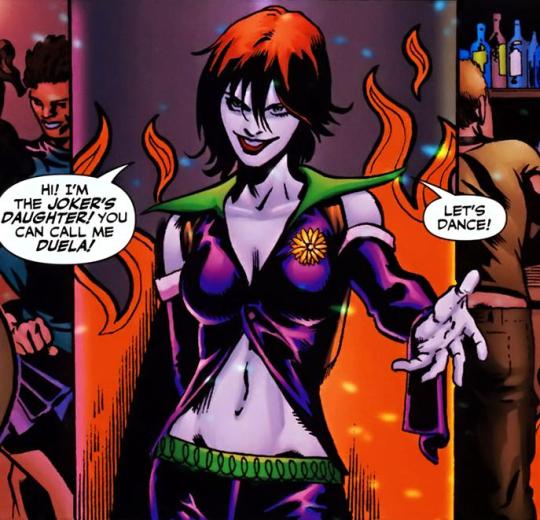
Duela dent
Aka harlequin(not to be confused with harley quinn)/jokers daughter
Another long time member of the titans organization
It was always an enigma who she was and where she came from, even to herself. She eventually discovered she was a reality-hopping inhabitant of Earth-3, and was not the Joker's daughter, but the daughter of the Jokester's(think heroic alternate joker from another universe) and Three-Face(female heroic alternate two face named Evelyn dent) as well as being the step daughter of earth 3s heroic riddler.
Romantically linked to a talon(think earth 3 evil version of the robins) Who wasn't actually named outside of his code name (but could be alt tim drake) who also crossed over into new earth as a titans member. So Romeo and juliet style romance.
#dc comics#lilith clay#bat-girl#batgirl#bette kane#mary Elizabeth kane#hawk and dove#hank hall#donald hall#golden eagle#charley parker#Ch'al Andar#gnarrk#bumblebee#karen beecher#Malcom Duncan#herald#beast boy#garfield logan#flamebird#omen#titans west#new earth#earth-one#jokers daughter#duela dent#harlequin#teen titans
78 notes
·
View notes
Text
Happy 77th Birthday to JOHN McVIE (born 26 Nov 1945)
NOTE: I've put together this video montage to go with THE CHAIN - the only song from RUMOURS with writing credits from all five members (Stevie Nicks, Lindsey Buckingham, Christine McVie, John McVie, and Mick Fleetwood).
As the bassist for Fleetwood Mac -- and, indeed, providing the "Mac" in that group name -- John McVie may be the most circumspect, self-effacing rock musician ever to achieve anything like superstar status. This fact could be explained when one recognizes that he never set out to be a rock musician, or a superstar.
Among bassists whose names are (or have been) household words, he's positively a shrinking violet next to figures such as John Entwistle, Paul McCartney, Jack Bruce, John Paul Jones, Sting, et al., all the while appearing on just about as many records as any of them (save McCartney) that are in people's collections.
He is best known as a member of the rock bands John Mayall & the Bluesbreakers from 1964 to 1967 and Fleetwood Mac since 1967. He joined Fleetwood Mac shortly after its formation by guitarist Peter Green in 1967, replacing temporary bass guitarist Bob Brunning. McVie and Fleetwood are the only two members of the group to appear on every Fleetwood Mac release, and for over fifty years have been the group's last remaining original members.
In 1968, McVie married blues pianist and singer Christine Perfect, who became a member of Fleetwood Mac two years later. John and Christine McVie divorced in 1977, but remained on good terms. During this time the band recorded the album Rumours, a major artistic and commercial success that borrowed its title from the turmoil in McVie's and other band members' marriages and relationships.
McVie was inducted into the Rock and Roll Hall of Fame in 1998 as a member of Fleetwood Mac.
THE CHAIN
Stevie Nicks wrote the lyrics about Lindsey Buckingham as their relationship was falling apart. Buckingham and Nicks share lead vocals on the song.
Pieces of different studio takes were spliced together to form the track. The bass line that comes in at about the 3-minute mark through the song was written independently by John McVie, who was originally planning to use it in a different song.
This began as a Christine McVie song called "Butter Cookie (Keep Me There)," which which is available on the expanded edition of Rumours. The beginning of the track wasn't working, but the band loved Mick Fleetwood and John McVie's ending, which was now on tape. So, they counted back from the bass line, used the kick-drum as a metronome, Nicks gave them the lyrics for the verses, Buckinghan and Christine McVie wrote the music and the chorus lyrics, Lindsey added the guitar over the ending, and "The Chain" as we know it was born.
This is the only Fleetwood Mac song credited to all five members of their 1977 lineup. Since various pieces were assembled to make the song, they all had some contribution.
This song came to represent the resilience of Fleetwood Mac and the strength of their bond as they continued on for many years despite their personal and professional difficulties. It was often the first song they played in concert.
The low bass line in this song was used by the BBC for the Grand Prix theme tune for many years.
Mick Fleetwood: "'The Chain' basically came out of a jam. That song was put together as distinct from someone literally sitting down and writing a song. It was very much collectively a band composition. The riff is John McVie's contribution - a major contribution. Because that bassline is still being played on British TV in the car-racing series to this day. The Grand Prix thing. But it was really something that just came out of us playing in the studio. Originally we had no words to it. And it really only became a song when Stevie wrote some. She walked in one day and said, 'I've written some words that might be good for that thing you were doing in the studio the other day.' So it was put together. Lindsey arranged and made a song out of all the bits and pieces that we were putting down onto tape. And then once it was arranged and we knew what we were doing, we went in and recorded it. But it ultimately becomes a band thing anyway, because we all have so much of our own individual style, our own stamp that makes the sound of Fleetwood Mac. So it's not like you feel disconnected from the fact that maybe you haven't written one of the songs. Because what you do, and what you feel when we're all making music together, is what Fleetwood Mac ends up being, and that's the stuff you hear on the albums. Whether one likes it or not, this is, after all, a combined effort from different people playing music together."
2 notes
·
View notes
Text
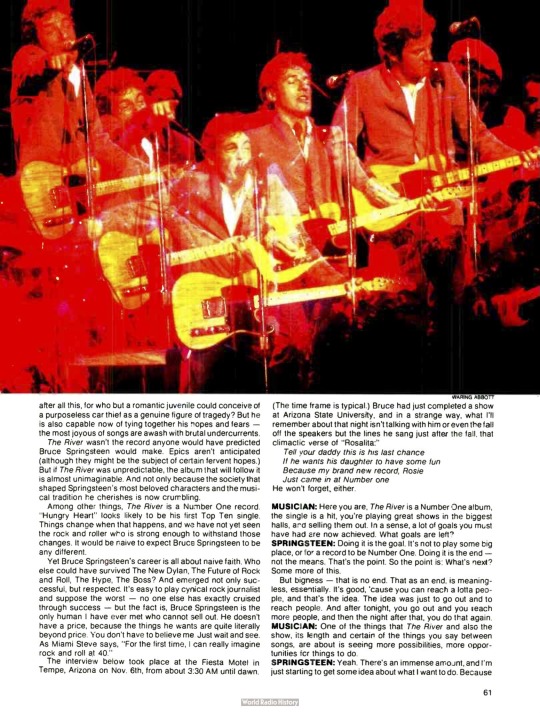
9 notes
·
View notes
Text
The Legend That Was Lost Too Soon
I honestly am not a huge fan of Tupac. I do acknowledge that he is a legend in rap and hip/hop history but his music has never been anything I’d personally listen to. He still should be given his credit as one of the most influential artists of all time. However, he starred in one of my favorite movies from the 90s, which is why I dedicated this blog post to him.

Overview
Tupac Amaru Shakur, often referred to by his stage names Makaveli and 2Pac is regarded by many as one of the greatest rappers of all time in terms of success and influence. Shakur has sold over 75 million records worldwide, making him one of the best-selling musicians. Shakur's music has been recognized for tackling many of the modern socioeconomic challenges that inner cities face. Shakur was born in New York City to parents who were both political activists and Black Panther Party members.
Controversies
Tupac’s legacy was not all sunshine and rainbows. He was arrested and sent to jail multiple times, and actually faced prison time at one point.
He faced a trial in 1994 for alleged sexual assault of a fan. He and members of his entourage were charged with sexual abuse of a woman named Ayanna Jackson. Throughout the court procedures, the late rapper maintained that the encounter was consensual, and he even pled his case to the public by discussing it on The Arsenio Hall Show. He ended up being sentenced to 1.5 to 4.5 years. After serving eleven months of his sentence, he was released from prison on an appeal financed by Marion "Suge" Knight.
An article by CBC, written by the CBC Radio, talks about how Tupac did not only release music with a societal conscious message. Shakur shifted away from positive and affirming political music and toward more profitable, but controversial, music when trends began to change.
Acting Career
Tupac was a master of many cards, as he didn’t stick to just making music. He also pursued an acting career. One of his most famous appearances was in the movie Juice in 1992. This is one of my favorite 90s movies of all time! Tupac played the role of Bishop in the film. The plot foes like Bishop gets a taste of power with the possession of a firearm, he turns into a merciless killing machine who his closest friends no longer recognize. It really is a hood classic and introduced me to how talented Tupac was.
Tupac also starred in the film Poetic Justice in 1993. He played the character Lucky and had an on-screen romantic partner. This role showed how versatile Tupac’s acting style was and how he could truly fit into any role presented to him.
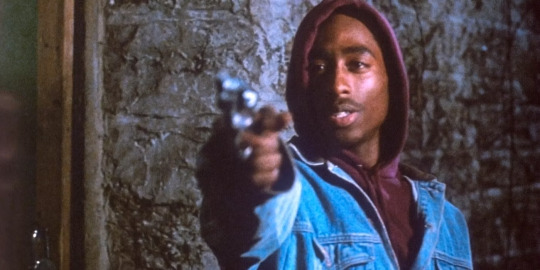
Accomplishments
Before he unfortunately passed away, Tupac made a huge mark on society and had an ongoing list of successes and accomplishments.
Tupac sold over 75 million records worldwide. Rolling Stone magazine named him one of the "100 Greatest Artists of All Time."
One of his most well-known songs, "Changes," addresses issues affecting society. The song reuses phrases from "I Wonder If Heaven Got a Ghetto," which was recorded in 1992, and samples Bruce Hornsby and the Range's 1986 smash song "The Way It Is." Tupac had experienced growing up with concerns of poverty, classism, and racial segregation, all of which were addressed in the 1986 song. Tupac addressed racism, drugs, war, violence, and police brutality in his verses.
Rappers' attitudes about movies have altered since Tupac's breakthrough film, Juice. Bishop, a confused young guy who betrays his friends and grows into a ruthless murderer, was played by him. The film not only illustrates what it was like to live in Harlem in the 1990s, but it was also the first time a rapper gave a truly excellent dramatic performance.
Tragedy
He was killed in a drive-by shooting in Las Vegas, Nevada, on September 7, 1996, at 11:15 p.m. The incident occurred while the vehicle in which he was driving was stopped at a red light. Four shots from a.40-caliber Glock were fired at Shakur. Six days later, he died as a result of his injuries.
Just recently, Duane "Keefe D" Davis was apprehended on September 29, 2023, a whole 27 years later, after having been charged by a grand jury for the first-degree murder of Tupac Shakur.
This made me happy because society went all these years without knowing who killed such a legend in the making, and now it seems justice has finally been served.
citations used:
#tupac shakur#juice movie#poetic justice#suge knight#keep ya head up#music blog#blog post#artist#rap#hip hop#90s rap
3 notes
·
View notes
Text

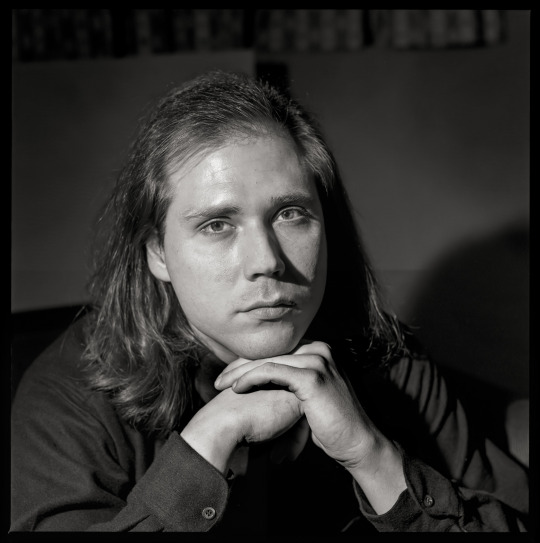
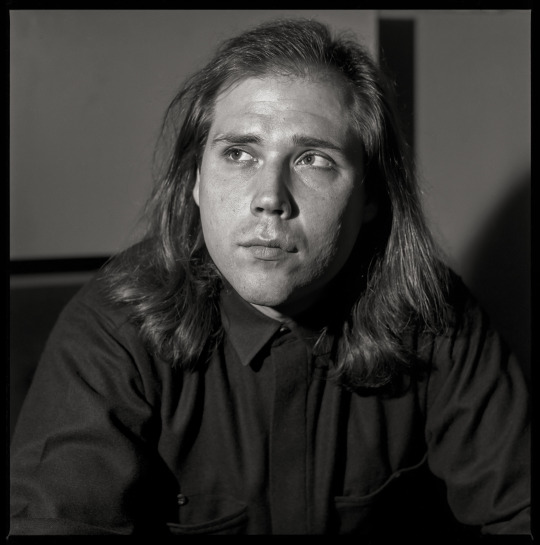
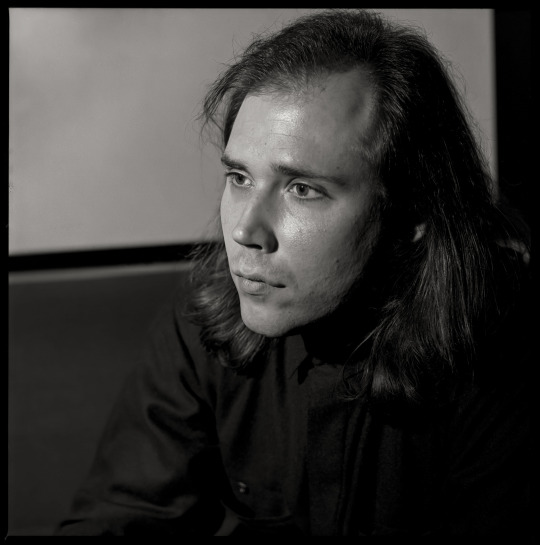
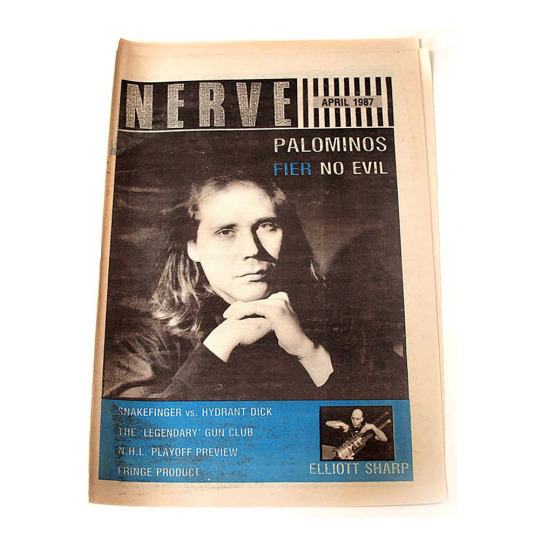
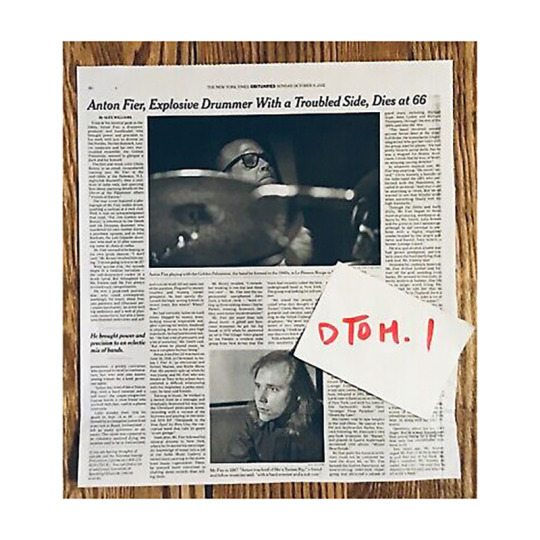
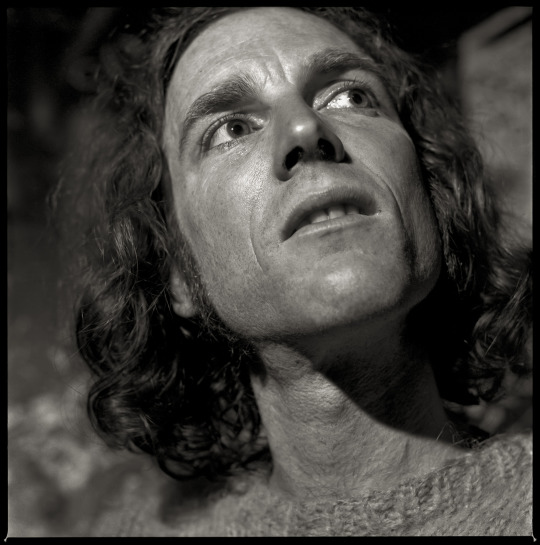

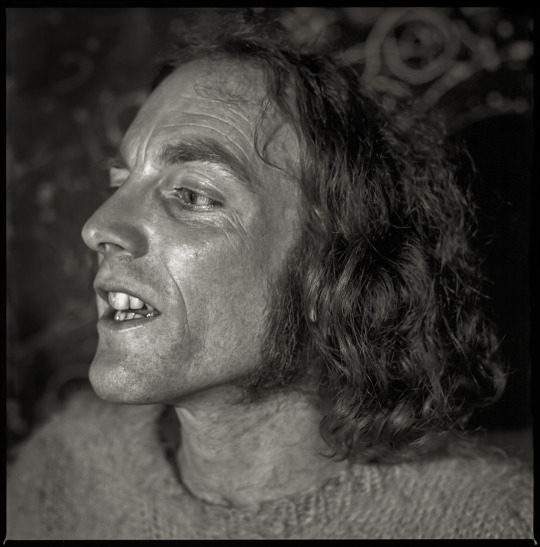
DRUMMERS: Anton Fier & Chris Cutler, 1987
I photographed two drummers in 1987 who were more than timekeepers. Anton Fier arrived in Toronto as a bandleader - the organizing force behind The Golden Palominos, an alt/indie/avant garde supergroup who he had transformed from a jazz outfit on their first album to an experimental pop band on their second, Visions of Excess. Guest vocalists on the record included John Lydon, Michael Stipe of R.E.M., Jack Bruce from Cream and Fier's discovery, singer and songwriter Syd Straw, alongside an all-star cast of musicians that included Richard Thompson, Jody Harris and Bill Laswell. His touring band included Matthew Sweet and P-Funk keyboardist Bernie Worrell. I had done a very prickly, unsuccessful interview with Fier over the phone a few months previous, but for some reason (I loved the record) decided to ask my editors at Nerve for a re-match, interviewing and photographing him at his hotel for what would be a cover story.
My second interview with drummer Anton Fier turned out much better than the first, and my photos were even better. I was still using my human lightstand and tripod method, holding my Mamiya C330 in one hand and my Vivitar flash in the other while trying to focus and compose, but the results were improving. Fier and the Golden Palominos would continue to release a string of fascinating records through the '80s and into the '90s - albums like Blast of Silence, A Dead Horse, Drunk With Passion, Dead Inside and Dreamspeed, most of which are extremely rare today. Fier's career had begun with immense promise, with stints in the Lounge Lizards and The Feelies before the Golden Palominos, and he would play on records by everyone from the Electric Eels, Joe Henry, Lloyd Cole and Matthew Sweet to Yoko Ono, Mick Jagger, Jeff Buckley and Herbie Hancock. But by the 2000s he was beset by money and health problems, and in September of 2022 he was dead of assisted suicide in Switzerland. One of my 1987 portraits of Fier ran with his New York Times obituary - something neither he nor I would have imagined back in that hotel room near Maple Leaf Gardens.
The other drummer of note I photographed in 1987 was Chris Cutler, born in 1947 in Washington DC to a British intelligence officer and his wife. His musical career began when he joined the Cambridge prog band Henry Cow, and after the band broke up in 1978 he founded Recommended Records, later adding a publishing arm, November Books. While performing with Art Bears, News from Babel and countless other avant-garde groups, he wrote File Under Popular, a collection of essays on music. This book, and his apparently endless musical energy, was what inspired me to photograph and - I presume - interview him when he came to town in 1987. He embodied the DIY spirit that I also saw in punk rock, and I was impressed when he showed up at Ildiko's, the grimy club above a pool hall where I'd seen countless hardcore shows, with his whole drum kit condensed into two cases that he hauled up the stairs. I photographed Cutler in the grafitti-filled dressing room at the club, holding my C330 in one hand and moving my flash around with the other, getting a few dramatic results. Chris Cutler continues to perform, record, write and even broadcast to this day, and Recommended is still putting out records.
#portrait#Anton Fier#portrait photography#black and white#film photography#musician#mamiya c330#early work#1987#Golden Palominos#drummers#Chris Cutler#some old pictures i took
2 notes
·
View notes
Text

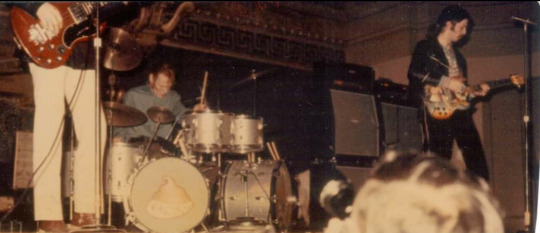
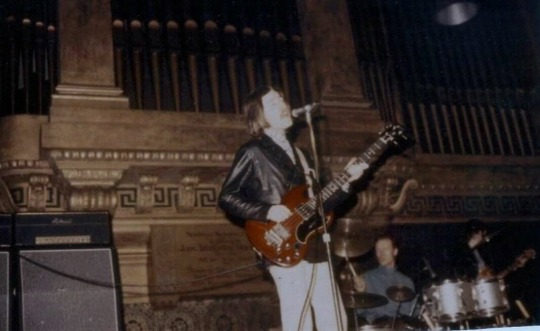

April 10, 1968: Cream play at Yale University's Woolsey Hall in Connecticut [Photos: Richard D. Peck]. They were supported by local band The Morning; member John G. O'Leary describes it as one of the most memorable events of his life:
"Cream, the hottest supergroup on the scene, featuring the most critically acclaimed rock guitarist on the planet, was the envy of every pop musician I knew. Eric Clapton on guitar, Jack Bruce on bass and vocals, and Ginger Baker on drums were considered, well, the cream of the crop.
To add to their reputation, their latest single, "Sunshine of Your Love", had become a top forty hit. (It was one of those propitious moments when quality musicianship was rewarded with commercial success.)
My own band, The Morning—a local psych-folk-rock band composed of four Yale students and legendary Greenwich Village singer Randy Burns—was given the opportunity to open for these British demigods and we jumped at the chance.
Oddly, what I remember most from that night was Cream kicking us out of the dressing room and locking the door prior to their own performance. It was widely known they weren't getting along with each other at this point, so I figured they were conducting a group therapy session.
But when they emerged ten minutes later, with eyes bulging out of their sockets, they looked so...enraptured. Clearly they had been holding a prayer meeting! Having been spiritually fortified, Clapton, Bruce, and Baker promptly put on an inspired (and frenzied) display of musical virtuosity in front of a sold-out house, knocking out classics such as "Spoonful," "I'm So Glad," and "Crossroads" at ear-bleeding volume.
It was probably the loudest musical performance ever in the home of the Yale Symphony Orchestra, but no one complained. (If there was a complaint nobody would have been able to hear it.) I think the audience quickly forgot about our opening set, though I recall that night being a turning point in my social life. It was such a great show that no one protested the high ticket prices ($3.00).
[...]The Morning went on to have a good run as an "almost famous" band before breaking up a year later (we were co-billed with the J. Geils Band for our farewell gig)—propelling us individually into even more interesting musical careers.
But I never looked back, except to reminisce about that April night when we got to share the stage with Eric Clapton and the best live rock band in the world. Even if they did throw us out of their prayer meeting."
~ John G. O'Leary (Business (and life) Lessons from Rock)
#cream band#eric clapton#jack bruce#ginger baker#1968#those were the days#woolsey hall#eyewitness accounts
23 notes
·
View notes
Photo
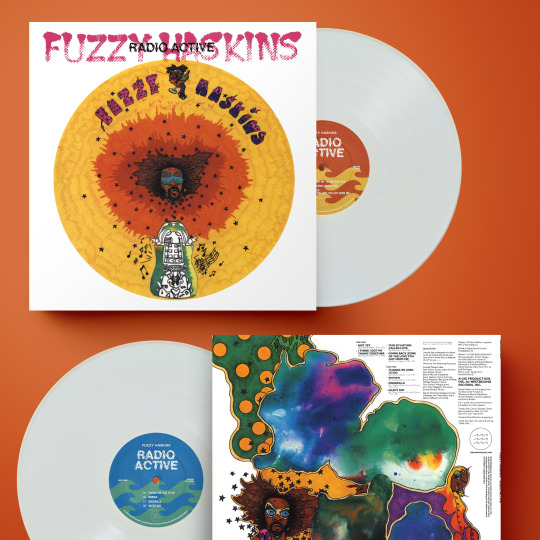
FUZZY HASKINS ‘RADIO ACTIVE’ (1978)
A co-founder of the P-Funk movement, Clarence Eugene “Fuzzy” Haskins was born in West Virginia in 1941 and started as a singer in the doo-wop vocal group The Parliaments, led by George Clinton in the late 1950s. He was a founding member of the groundbreaking and influential 1970s funk bands PARLIAMENT-FUNKADELIC. Fuzzy Haskins toured and appeared on P-Funk albums as a singer, and occasionally as a guitarist, throughout the 1970s. He is a member of the Rock and Roll Hall of Fame, inducted in 1997.
Despite the success of Mothership Connection, Fuzzy Haskins was growing frustrated that his songs were no longer being featured on albums by Funkadelic and Parliament. He also watched as Bootsy Collins, a relative newcomer to the family, embarked upon a solo career. This added to Haskins’ frustration and at the height of P-Funk’s popularity, Fuzzy left the ensemble to pursue a solo career.
Fuzzy Haskins released two landmark solo albums on Westbound Records: ‘A Whole Nother Thang’ in 1976 and ‘Radio Active’ in 1978. With his brand of earthy & heavyweight funk, Fuzzy Haskins’ solo works fits right in with many of the other great P-Funk side projects and was sampled by renowned artists and acts from the likes of Prince, The Prodigy, N.W.A and Fatboy Slim.
On the album we are presenting you today (Radio Active from 1978) you’ll find eight sublime tracks written (or co-written) by Mr. Haskins himself and recorded by Richard Becker at the legendary PAC 3 Recording Studios in Dearborn, Michigan where classic albums from Norman Feels and Dennis Coffey were born. One of the tracks (Woman) was personally mixed for the album by Tom Moulton (the originator of musical revolutions like ‘the remix’, ‘the breakdown section’ and the ‘12inch single vinyl format’).
Fuzzy switched between drums and guitar, while taking charge of the lead vocals and production, he was accompanied in the studio by an all-star musician line-up of P-Funk family members such as Jerome ‘Bigfoot’ Brailey (drums), Cordell ‘Boogie’ Mossom (bass), Gary Shider & Michael Hampton (guitars), Glen Goins (piano, drums & guitar)…and of course the fantastic Mr. Bernie Worrell on keyboards. Besides these Parliament/Funkadelic alumni, also present on the recordings are Bruce Nazarian (The Temptations) on Moog and Jazz pianist Gary Schunk (known for his collaborations with Marcus Belgrave & Wendell Harrison).
The result of all this musicianship was a record that oozed quality. Despite the quality of the music (and just like with ‘A Whole Nother Thang’) the album didn’t sell the vast quantities that were projected and didn’t reach the audience it deserved.
‘Radio Active’ is filled with keyboard-driven spacey funk, sharp hooks, popping bass-lines, JB styled soulful (yet sexy) vocals, a hint of disco, fantastic guitar build-ups and breaks that make you shake…a true gem that deserves a place in your record collection (mint vinyl copies are hard to find and pricey these days). If you are a Funkateer…this one’s for you!
Tidal Waves Music now proudly presents the FIRST ever vinyl reissue of ‘Radio Active’ since 1978 (the year the record was originally released on Westbound Records).
This unique album comes as a deluxe 180g vinyl edition (strictly limited to 500 copies) with obi strip and features the original artwork created by virtuoso Ronald Edwards (known for his graphic work with Parliament-Funkadelic, Bootsy Collins, Fred Wesley, George Clinton, Maceo Parker, Bernie Worrell, Fishbone…and countless others). To top it all off, this release also includes an insert featuring the original liner notes written in 1994 by renowned author and producer Rob Bowman (Otis Redding, Isaac Hayes, Marvin Gaye) who reflects on Fuzzy Haskins’ two solo albums.
Available on 180g WHITE vinyl (limited to 500 copies w/obi strip) and on 180g BLACK vinyl (limited to 500 copies w/obi strip).
Available in record stores worldwide and online from www.lightintheattic.net
#Fuzzy Haskins#Pfunk#Funk#funkadelic#parliament#George Clinton#bootsy collins#tidalwavesmusic#lightintheattic
10 notes
·
View notes
Text
Birthdays 8.14
Beer Birthdays
Eugene L. Husting (1848)
Brandon Hernández (1976)
Five Favorite Birthdays
Emmanuelle Beart; French actor (1965)
Halle Berry; actor (1968)
Mila Kunis; Ukrainian-American actor (1983)
Gary Larson; cartoonist (1950)
Steve Martin; comedian, actor, writer, banjo player (1945)
Famous Birthdays
Russell Baker; essayist (1925)
Emmanuelle Béart; French actress (1963)
Catherine Bell; actor (1968)
Herman Branson; African-American physicist, chemist (1914)
Sarah Brightman; English singer-songwriter (1960)
John Brodie; San Francisco 49ers QB (1935)
Lodewijk Bruckman; Dutch painter (1903)
Sharon Bryant; R&B singer (1956)
Kevin Cadogan; rock singer-songwriter, guitarist (1970)
Méric Casaubon; Swiss-English author (1599)
Yannoulis Chalepas; Greek sculptor (1851)
Darrell "Dash" Crofts; singer-songwriter and musician (1940)
David Crosby; rock singer (1941)
Charles Jean de la Vallée-Poussin; Belgian mathematician (1866)
Mstislav Dobuzhinsky; Russian-Lithuanian-American artist (1875)
Slim Dunlap; singer-songwriter and guitarist (1951)
Tracy Caldwell Dyson; chemist and astronaut (!969)
Richard R. Ernst; Swiss chemist (1933)
Erica Flapan; mathematician (1956)
Francis Ford; actor and director (1881)
John Galsworthy; English writer (1867)
Alice Ghostley; actor (1926)
Larry Graham; soul/funk bass player and singer-songwriter (1946)
Buddy Greco; singer, pianist (1926)
Marcia Gay Harden; actor (1959)
Jackée Harry; actress (1956)
Robert Hayman; English-Canadian poet (1575)
Lee Hoffman; author (1932)
Leopold Hofmann; Austrian composer (1738)
Doc Holliday; dentist, wild west gambler (1851)
James Horner; composer (1953)
Ernest Everett Just; African-American biologist (1883)
Jan Koetsier; Dutch composer (1911)
Margaret Lindsay Huggins; Anglo-Irish astronomer (1848)
William Hutchinson; founder of Rhode Island (1586)
Magic Johnson; Los Angeles Lakers (1959)
Stanley A. McChrystal; American general (1954)
John McCutcheon; folksinger (1952)
Paddy McGuinness; English comedian (1973)
Lionel Morton; English singer-songwriter, guitarist (1942)
Bruce Nash; film director (1947)
Frank Oppenheimer; particle physicist (1912)
Hans Christian Ørsted; Danish physicist and chemist (1777)
Susan Saint James; actor (1946)
Paolo Sarpi; Italian writer (1552)
Ben Sidran; jazz and rock keyboardist (1943)
Stuff Smith; violinist (1909)
Danielle Steel; writer (1947)
Jiro Taniguchi; Japanese author and illustrator (1947)
Bruno Tesch; German chemist (1890)
Ernest Thayer; "Casey at the Bat" writer (1863)
Bruce Thomas; English bass playe (1948)
Pieter Coecke van Aelst; Flemish painter (1502)
Carle Vernet; French painter and lithographer (1758)
Claude Joseph Vernet; French painter (1714)
Earl Weaver; Baltimore Orioles manager (1930)
Wim Wenders; German film director (1945)
Lina Wertmüller; Italian film director (1926)
2 notes
·
View notes